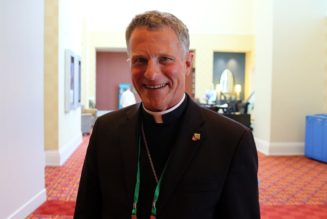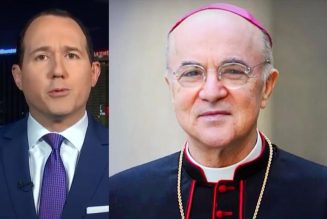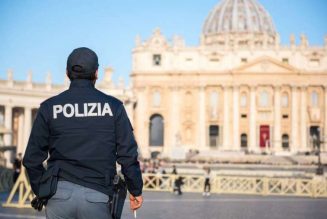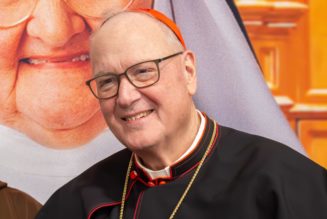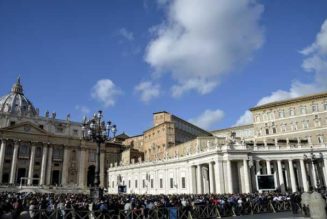ROME – In the latest twist to a mounting privacy scandal in Italy, a Vatican prosecutor has announced opening an investigation to determine whether confidential information was used illicitly to influence the recent “trial of the century” on financial crime, which ended with the first-ever conviction of a cardinal by a Vatican civil court.
“As soon as I discovered, from articles in the press, the existence of electronic stalking regarding the Holy See, I opened a file, because I believe that someone followed our investigations from the outside,” said Alessandro Diddi, a veteran Italian lawyer who serves as the Vatican’s Promoter of Justice.
Diddi was the chief prosecutor in the recent trial of ten defendants, including Italian Cardinal Angelo Becciu, for various forms of financial crime, mostly linked to a controversial $400 million real estate transaction in London. Last December, Becciu and the other defendants were found guilty by a three-judge panel and sentenced to various prison terms and fines.
Diddi’s comments were made to the Italian newspaper Il Tempo March 17.
The background to the new Vatican probe is a widening Italian scandal popularly known as dossieraggio, meaning the use of confidential and illicitly obtained information to compiles damaging dossiers against high-profile individuals.
The origins of the scandal date to March 2022, when an Italian newspaper published a series of articles on the business dealings of Guido Crosetto, who had been named the country’s defense minister under the new conservative government of Prime Minister Giorgia Meloni.
Crosetto filed a complaint for breach of confidentiality, and a resulting investigation discovered that a lieutenant in Italy’s Guardia di Finanza, or financial police, named Pasquale Striano, had accessed highly sensitive databases regarding money laundering and organized crime in order to extract the information on Crosetto and pass it to journalists.
From there, it became clear that Crosetto was far from Striano’s only target. Other searches, all allegedly performed without authorization, concerned the soccer player Ronaldo, the Italian rapper Fedez, and a girlfriend of former Italian Prime Minister Silvio Berlusconi.
Investigators say they’ve identified at least 800 suspicious searches undertaken by Striano related to 165 different individuals, although in recent comments to the Italian press Striano claimed the actual number of database searches he performed could reach as high as 40,000.
Among other things, investigators are seeking to understand if Striano and anti-mafia prosecutor Antonio Laudati, who’s also been named in the investigation, conducted these searches on behalf of other parties who were seeking to influence the outcome of political or legal procedures through the use of well-timed leaks.
According to the report in Il Tempo, investigators have established that Striano also performed a series of illicit database searches related to key figures in the Vatican trial.
In July and October 2019, for example, Striano reportedly conducted three separate searches regarding Raffaele Mincione, one of two Italian financiers charged with defrauding the Vatican over the London transaction.
Striano also reportedly sought information on Luciano Capaldo, an architect and consultant to the Vatican’s Secretariat of State, and a key witness in the trial; Gianluigi Torzi, the other businessman involved in the London deal; Fabrizio Tirabassi, a former official of the Secretariat of State and another defendant in the case; and also Cecilia Marogna, a self-described security consultant tapped by Becciu to help negotiate the released of a kidnapped missionary nun, who was convicted of diverting ransom funds to purchase luxury goods for herself.
It’s not immediately clear if any of the information allegedly extracted by Striano, or other parties, affected the outcome of the Vatican trial, but Diddi said it’s essential to look into the possibility.
“Opening a file is a necessary act, though at the moment it’s against unknown parties,” Diddi said. “We must also understand what kind of crime might have been committed, but it’s something that absolutely deserves to be looked into.”
